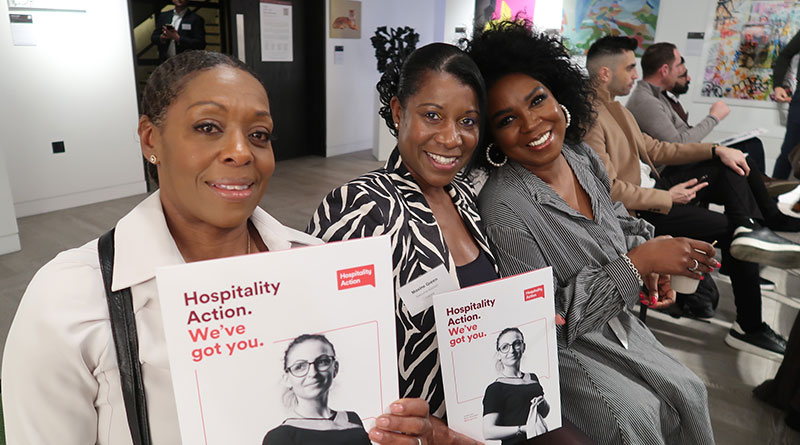Catch The Pinches Before The Punches – Why Prioritising Staff Mental Wellbeing Is Good For Business

Hospitality Action encouraged industry leaders to take a fresh look at how they approach staff wellbeing at their annual Breakfast Showcase.
Held at Bankside Hotel London last week, management teams from across the hospitality industry came together to share thoughts and best practice aimed at supporting staff wellbeing and welfare, which not only benefits individuals but also contributes to the overall success and sustainability of a business.
Sheila Donohoe, clinical services delivery lead at workplace wellbeing provider Spectrum Life, discussed the positive impact on employers and employees of implementing an Employee Assistance Programme (EAP). Offering timely interventions and aiding the ongoing wellbeing of employees will “catch the pinches before the punches.” In addition, it signals an organisation’s commitment to the welfare of its teams, enhancing employee resilience and productivity, and fostering a positive workplace culture with reduced absenteeism.
Hospitality Action’s EAP currently supports over 200,000 hospitality lives, and the demand for their service has never been greater with 2024 already seeing an unprecedented number of calls for support.
With the financial and mental health challenges many of us are currently facing, it’s never been more important to create a supportive environment and invest in employee wellbeing to empower staff to seek assistance. Offering the ability to proactively address issues at their onset can prevent them from escalating into more serious problems.
The results of Hospitality Action’s EAP service speak for themselves. Of the 47% of people classed as in a heighted level of psychological distress before support is delivered, the severity of psychological distress is reduced for 93% after support had been received, with those reported as healthy increasing by 40 times. 98% of those who engaged with the EAP rated the service as good or very good and 99% would recommend the service to a friend or family.
Group Operations Director at Iconic Luxury Hotels and Cliveden House General Manager, Francisco Macedo, highlighted the financial benefits of implementing an EAP, explaining: “Having an EAP in place is a small financial outlay for something that in turn creates more revenue for hospitality businesses, through having an experienced team who stay with the business for longer and are more skilled in upselling.”
However, it’s one thing to embed an EAP into a business, but as Lee Melton, head of people at The Coaching Inn Group, explained: “It’s only a benefit if it’s used” thus internal promotion which mitigates the stigma associated with seeking mental health support is key.
Rounding off the event, Chris Mitchell and Robbie Laidlaw of The Genuine Dining Co. talked about their epic feat of rowing 3,000 miles across the Atlantic in the World’s Toughest Row which raised over £250,000 for Hospitality Action. Motivation to undertake such an epic feat came after several of their team suffered significant psychological distress following the Borough Market terrorist attacks in 2017 followed by the damage to the industry due to the pandemic. Hospitality Action provided onsite Critical Incident and trauma support to the team with many of their team members further supported by Hospitality Action’s EAP counselling service which has been a lifeline and played a monumental role in helping them come to terms with such distressing and life changing experiences.
Services Director at Hospitality Action, Camilla Woods, said:
“Our dynamic and demanding industry can put huge pressure on those who service it, so it’s essential they know where to seek help when it’s needed. The benefits of an EAP which includes 24/7 in the moment support and access to a counselling service extend far beyond the individual, positively impacting their relationships, work performance and overall satisfaction with life.
“An EAP offers employees a lifeline and safe space to seek assistance to address personal or work-related issues without fear of judgement or repercussions, empowering individuals to proactively address their wellbeing needs and navigate life’s challenges with greater resilience and confidence. Beyond the practical, it fosters a culture of care and trust within an organisation to improve overall satisfaction among employees to drive long-term success.”
